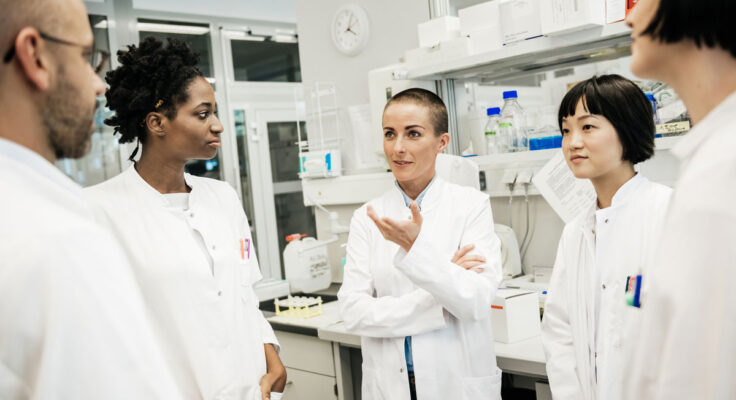I’m so proud that our foundation has made such a strong commitment to racial justice. It is a commitment that each of us at the Kenneth Rainin Foundation has taken seriously, and which we embrace wholeheartedly. As our CEO Jen Rainin wrote in July, “We continue to learn about how white dominant culture affects our work, and how implicit bias drives policies and practices that deepen inequities in our fields.” While the Foundation has been exploring these questions in earnest for a while now, there is no question that we have deepened our examination in recent months.
Since we launched our work in Health, our grantmaking has been focused on funding biomedical research in Inflammatory Bowel Disease (IBD) to help all patients anywhere in the world. In our first decade of grantmaking, we sought to fund the most promising research and ask the right questions about immunology, microbiology, diet and other factors that will ultimately help IBD patients. And as we confront the effects of systemic racism across our society, we must acknowledge how racism denies Black, Indigenous and people of color access to the various resources that lead to good health.
The huge institutionalized systems for advancing research and delivering health care are overwhelmingly white and male and driven by conscious and unconscious bias. This has had disastrous effects, and most recently we see it in the disproportionate health outcomes of the COVID-19 pandemic in the US for Black, Latinx and Indigenous people. Pre-existing inequities are also exacerbating the pandemic’s impact on female as well as Black and Latinx researchers. If we want a health system that serves everyone equitably, and if we want to help as many people with IBD as possible, we need a diverse workforce—from clinicians to translational researchers and basic scientists.
A Journey Of Inquiry
It is against that backdrop that we begin a journey of inquiry into the role that the Rainin Foundation can play to address racial disparities in the biomedical enterprise. We will launch this important phase of our work by asking important and often uncomfortable questions, starting conversations, and integrating what we’re learning into our grantmaking.
We plan to begin that exploration with a series of honest conversations with our Scientific Advisory Board, which makes funding recommendations to our Board of Directors for health grants and provides strategic advice and support on programmatic issues. We are also starting to collect demographic data about our grantees. This is a valuable first step in understanding the state of our field and can help inform the changes that we hope to make.
We are at the beginning of a journey that will involve listening carefully to our grantees, our Scientific Advisory Board, as well as new partners who can help us reach outside our existing networks and comfort zone. We don’t know where this will lead us, but we are committed to doing our part to advance racial equity and anti-racism in the biomedical research field. This will help us be more effective grantmakers and better colleagues, and it is a key step to advancing science.

